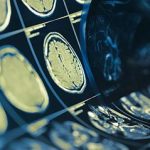
Attention-deficit/hyperactivity disorder (ADHD) may be an even bigger predictor of depression and anxiety in adulthood than autism is, a new study finds — highlighting the mental health side of the disorder. It’s known that kids and adults with ADHD often have co-existing conditions, including depression and anxiety. Research suggests that about 14% of children with ADHD have depression, while up to 30% have an anxiety disorder, according to the National Resource Center on ADHD. Adults with ADHD, meanwhile, are even harder-hit — with each of those conditions affecting up to half. The new study, researchers said, adds to what’s known by showing that ADHD is even more strongly linked to anxiety and depression than “autistic traits” are. Autism, which impairs communication and social skills, is itself tied to higher-than-normal rates of those mental health conditions. The findings spotlight the mental health component of ADHD, according to Richard Gallagher, an associate professor of child and adolescent psychiatry at NYU Langone Health in New York City, who reviewed the findings. “There’s a notion that people with ADHD have a ‘simple’ problem with paying attention,” he said. “They just need to learn to sit down and focus.” But like autism, ADHD is a neurodevelopmental disorder, and it can cause significant problems at school, work, home and in relationships, Gallagher said. “Over time, it can impact quality of life,”… read on > read on >
































-300x200.jpg)




